|
This past September, a colleague and I traveled to three cities in the U.S. to discuss with local ministry leaders ways in which Catholic Relief Services (CRS) could engage young adults. Our basic question was this: How can CRS contribute to the conversations folks in their 20s and 30s are already having around issues of peace, justice, and global solidarity? Two very clear, and slightly discordant, ideas emerged. The first: folks in their 20s and 30s want to offer their time to serve those in need. The second: we as Church might do better to shift from doing good for a world in need to being good for our world. What do I mean by this? The instinct to do good—to be a service to others, to give of ourselves, to respond in charity to the Gospel invitation to love our neighbor—is something to be applauded. In fact, integrating service into young adult ministry was a priority we heard time and again during our conversations. But not all world-changing, do-good ideas are created equal. In fact, some can be quite harmful. (For one example from some of CRS’ work that illustrates this general point, check out our Changing the Way We Care initiative on orphanages.) I’m not saying we shouldn’t dedicate time, talent, and treasure to helping those in need—both in our own communities and around the world. But we should challenge ourselves to be intentional about our initiatives, to investigate the real impact of our efforts—both intended and unintended. We should also ask ourselves who we are really serving: our own sense of self-worth or the real common good. I write all this by way of reflection on Pope Francis’ calling for a World Day of the Poor, the first of an annually recurring day that begins November 19, 2017. (Click here to read about it in the pope’s own words.) When we think of poverty, our knee-jerk reaction may be to rush to the nearest shelter with old clothes in hand. It may be to donate to a worthy cause. It may be to jump on a plane and fly across the world ready and able to build a house for a family without one. None of those things are bad, right? People need and deserve clothing and shelter, and charitable donations fuel so many organizations like my own. But intentionality demands that we challenge our own assumptions. Is the local shelter looking for the kinds of clothing I’d like to give, and do they have capacity to sort through them? Does that distant country need me to build a house, or is there a local engineer who is better able to accomplish the job? Do I know what percentage of donations an organization puts toward actually helping those in need? These are questions I myself have had to wrestle with, and the answers are different in every situation. But they must be asked. Why? Because they help me remove my own ego from the situation and instead make room for the true needs—and solutions—of others. Pope Francis challenges us to go beyond the doing—which is unmistakably important—to inhabit a new way of living: “We may think of the poor simply as the beneficiaries of our occasional volunteer work, or of impromptu acts of generosity that appease our conscience. However good and useful such acts may be for making us sensitive to people’s needs and the injustices that are often their cause, they ought to lead to a true encounter with the poor and a sharing that becomes a way of life.” So, then, as we reflect on this first World Day of the Poor, I challenge all of us to not simply do good, but to be good—to integrate God’s vision for humanity not simply into our acts of charity but into our daily choices, our lifestyles, and our long-term goals. Question for Reflection: How can you follow Eric's advice and not only do good, but be good? Interested in joining CRS in conversation around these issues? Join our new initiative for folks in their 20s & 30s CROSSROADS en el camino. To learn more about Catholic Social Teaching, please click here. **This post was originally published on 11/16/2017**
0 Comments
This past September, a colleague and I traveled to three cities in the U.S. to discuss with local ministry leaders ways in which Catholic Relief Services (CRS) could engage young adults. Our basic question was this: How can CRS contribute to the conversations folks in their 20s and 30s are already having around issues of peace, justice, and global solidarity? Two very clear, and slightly discordant, ideas emerged. The first: folks in their 20s and 30s want to offer their time to serve those in need. The second: we as Church might do better to shift from doing good for a world in need to being good for our world. What do I mean by this? The instinct to do good—to be a service to others, to give of ourselves, to respond in charity to the Gospel invitation to love our neighbor—is something to be applauded. In fact, integrating service into young adult ministry was a priority we heard time and again during our conversations. But not all world-changing, do-good ideas are created equal. In fact, some can be quite harmful. (For one example from some of CRS’ work that illustrates this general point, check out our Changing the Way We Care initiative on orphanages.) I’m not saying we shouldn’t dedicate time, talent, and treasure to helping those in need—both in our own communities and around the world. But we should challenge ourselves to be intentional about our initiatives, to investigate the real impact of our efforts—both intended and unintended. We should also ask ourselves who we are really serving: our own sense of self-worth or the real common good. I write all this by way of reflection on Pope Francis’ calling for a World Day of the Poor, the first of an annually recurring day that begins November 19, 2017. (Click here to read about it in the pope’s own words.) When we think of poverty, our knee-jerk reaction may be to rush to the nearest shelter with old clothes in hand. It may be to donate to a worthy cause. It may be to jump on a plane and fly across the world ready and able to build a house for a family without one. None of those things are bad, right? People need and deserve clothing and shelter, and charitable donations fuel so many organizations like my own. But intentionality demands that we challenge our own assumptions. Is the local shelter looking for the kinds of clothing I’d like to give, and do they have capacity to sort through them? Does that distant country need me to build a house, or is there a local engineer who is better able to accomplish the job? Do I know what percentage of donations an organization puts toward actually helping those in need? These are questions I myself have had to wrestle with, and the answers are different in every situation. But they must be asked. Why? Because they help me remove my own ego from the situation and instead make room for the true needs—and solutions—of others. Pope Francis challenges us to go beyond the doing—which is unmistakably important—to inhabit a new way of living: “We may think of the poor simply as the beneficiaries of our occasional volunteer work, or of impromptu acts of generosity that appease our conscience. However good and useful such acts may be for making us sensitive to people’s needs and the injustices that are often their cause, they ought to lead to a true encounter with the poor and a sharing that becomes a way of life.” So, then, as we reflect on this first World Day of the Poor, I challenge all of us to not simply do good, but to be good—to integrate God’s vision for humanity not simply into our acts of charity but into our daily choices, our lifestyles, and our long-term goals. Question for Reflection: How can you follow Eric's advice and not only do good, but be good? Interested in joining CRS in conversation around these issues? Join our new initiative for folks in their 20s & 30s CROSSROADS en el camino. To learn more about Catholic Social Teaching, please click here.
Prayer, fasting, almsgiving. At the heart of these Lenten pillars, we hear a call to go out and, as Pope Francis reminds us, encounter. In our prayer, we lift up the needs of our global family. Through our fasting, we empty ourselves, giving up something to make room for the needs of another. And in our almsgiving, we pour out our own gifts and resources so as to lift up those who are in need, near and far. Lent is a time to remember that we are all part of God’s one human family, and that means we have responsibilities to one another. And we come to understand and fulfill those responsibilities by building a culture of encounter. To build a culture of encounter, we must start from within ourselves, from our personal call to discipleship. God knows our true selves, desiring that we, too, discover the person God has called us to be. Through prayer, we encounter ourselves before God; we see ourselves as God sees us. And we realize that God delights in every member of our human family because God is truly present in each of us. Jesus reminds us, “You shall love your neighbor as yourself.” To love another, we must come to know our own selves, our own hurts and triumphs, our own joys and challenges. What begins as an interior encounter necessarily goes beyond ourselves, challenging us to live in solidarity with people we may never meet. How can we hope to go to the margins, to accompany those who are most vulnerable and in need, if we haven’t properly wrestled with our own vulnerability, our own need? Only then can we recognize that each person we encounter can share with us some unique insight about our world, about ourselves and, ultimately, about our God. We meet Jesus in the desert, a time of introspection and discernment before he begins his ministry. What has he gone there to accomplish? Luke tells us that Jesus “was led by the Spirit into the desert for forty days, to be tempted by the devil.” There he fasts and prays—and the Enemy takes that opportunity to tempt Christ with those temptations we each encounter daily: material comfort, honor, and pride. Jesus responded by trusting in God, by emptying himself of pride and power and ultimately rejecting the invitations of the Enemy. We, too, can better understand where we are broken and turning away from whom we are called to be by following Jesus’ example and encountering ourselves through prayer and fasting. We may not go into a desert for forty days, but we can and should take the forty-day invitation of Lent as an opportunity to reorient our lives, examining how we are living in relationship with God and our neighbors. That might mean coming to terms with troubling or disappointing truths. Can we, like Jesus, radically reject the offering of power, of influence? We all want glory, praise, a pat on the shoulder, but as Jesus turned away from the Enemy’s offering, so too must we. And then, where do we turn? We go to the margins with humility and compassion. Only by encountering ourselves can we then encounter our neighbors and build up that culture of encounter. This Lent, let us commit ourselves to encounter one another anew, to encounter Christ anew. Let us commit ourselves to giving more readily and more freely—whether of our time, our resources, or our finances. Let us commit to forty days of transformation, ready to encounter Jesus in the desert, and to commit to bearing whatever fruits that encounter sows. Continue reflecting with CRS Rice Bowl by downloading their app or visiting their “Stations of the Cross Digital Retreats” page. I was once told that giving and receiving the Sign of Peace at Mass is founded on giving and receiving forgiveness. As I understood it, whoever was at the other end of that handshake was, by default, forgiving you of all wrongs you may have committed against him or her. I was a lot younger when I was told this and the idea of exchanging forgiveness for a handshake was pretty appealing. You mean I didn’t have to actually apologize? I just briefly grab the other person’s hand, maybe give a quick hug, and that was it? More than fifteen years have passed, and I have—hopefully—developed a more mature understanding of what it means to give and receive forgiveness. I haven’t heard of this blank-slate forgiveness handshake ever since. But the idea has stuck with me. That’s a pretty powerful thing, isn’t it, that we could approach the exchange of peace as God approaches us in the Sacrament of Reconciliation—as an all-encompassing, no-questions-asked offering of forgiveness? What is it we hear at Mass right before we exchange the Sign of Peace? “Lord Jesus Christ, who said to your Apostles, ‘Peace I leave you, my peace I give you;’ look not on our sins, but on the faith of your Church, and graciously grant her peace and unity in accordance with your will.” Peace and forgiveness are tightly interwoven; one is inseparable from the other. We’re reminded of this each and every time we go to Mass. We recognize that peace starts from within—that we ourselves are imperfect yet loved by God—and that that very same peace is to be extended to every member of our community. We build peace together, but only if we forgive one another—and ourselves. But it is often all too easy to step out of Mass on Sunday as though you’re entering a separate world; what happened in the chapel stays in the chapel. If we’re called to be salt for the world, then this cannot be so. The world must see that it is not so—each and every person we encounter must recognize us as a person of peace, a person who is motivated and challenged by a God of peace. In part, this is why I’m fascinated by faith-based peacebuilding. I spend a lot of my graduate school career researching how a religious imagination can impact the common good, and to me, there are fewer places so powerfully open to the role of faith as peacebuilding. But as a Catholic, I often ask myself: What does my faith tradition offer in this great interreligious effort? I do not claim to be an expert—I’ve barely scratched the surface of the literature. But in my research I keep coming back to the role of ritual. There is power in ritual, in repetition, in coming together as a community to grapple with the unknowable from the nitty-grittiness of our lived reality. Those of all religious traditions can attest to this. Certainly, a brief look at tragedies over the last several months will reveal faith communities of all varieties gathering to mourn, to pray, to remember. When we come together before God in community ready and willing to grapple with mysteries divine and unknown, we must necessarily come together ready to forgive, ready to build peace. How can we allow the People of God—gathered in Christ’s name—to stand and pray together and do anything less? And yet, we know that so often that all-important Sign of Peace is reduced to something perfunctory, half-hearted, something my younger self might find appealing. I know I’m guilty of this more often than not. How many unrelated, far-from-peaceful thoughts are on my mind as I spin around in my chair in the chapel and shake the hands of strangers? Peace and forgiveness can begin with the Sign of Peace. But they don’t end there. That first step out of the chapel is not a step away from that Sign of Peace, but a further entering into it. Ritual is powerful, and there are few rituals quite so unique in the spiritual tools offered to build a more peaceful world than the Mass. What, then, do we bring to the altar in our own prayer? How do we use rituals of all kinds to build peace, to extend and receive forgiveness? A good piece of Scripture for our reflection might be Matthew 5:23-24: Therefore, if you bring your gift to the altar, and there recall that your brother has anything against you, leave your gift there at the altar, go first and be reconciled with your brother, and then come and offer your gift. I had lived in Baltimore for only a few months when some friends came to town. They insisted we see the Inner Harbor, and so off we went, adventuring on foot. I’ll be very honest: having grown up in the suburbs of Philadelphia, I was still getting used to the number of individuals on the streets asking for money. My instincts always screamed: KEEP WALKING; DON’T MAKE EYE CONTACT; YOU HAVE NO MONEY TO GIVE. And usually by the time my inner voices settled down, I was a block or two past the questioner. But when my friends and I decided on crepes for lunch, I found myself unable to keep walking past the homeless man who was hunkered down directly in front of the door to our intended restaurant. In my mind, of course, it became a game of lowered eyes, mumbled replies and a quick grab for the doorknob. Not so, for my friends. While I was shuffling past the man and his quiet request for help, my two friends stopped, asked his name, and shook his hand. “I’ll tell you what, buddy,” my one friend replied. “I don’t carry any cash. But why don’t I buy you a crepe?” The gentleman thought that would be just fine, and so in we all went to place our orders. I don’t remember that man’s name, what we discussed, or what kind of crepe he got. But I do know that my comfortable, ready-made response to those I encountered on the streets asking for money suddenly became embarrassingly out-of-touch and morally questionable. What’s more, I was awestruck by the knee-jerk reaction of my two friends: where I cast my eyes down, they looked another human being in the face and smiled. If you hear anything about Catholic Social Teaching, you often hear that it’s the Church’s best kept secret. Why is that? Because we sometimes don’t realize that popes, theologians, saints and everyday Catholics have been thinking, praying, and writing about issues of hunger, war, poverty, and injustice for a very long time. And, as a result, we have a pretty elaborate, intellectually rigorous and philosophically challenging framework within which to address the most pressing issues of our day. So often, those who are in on this best kept secret are often intimidated because they think they need a degree just to wrap their minds around Catholic Social Teaching. Not so. Certainly don’t miss out on the chance to study these teachings, but prayer is what helps us get at the heart of the matter. I spent a lot of time over the following weeks reflecting on that encounter between me, my friends, and that man outside the crepe shop. Why was I so struck, so inspired? Could this have been what the disciples saw in Jesus, why they were so attracted to him? Did they see an individual who met the gaze of those in need with a smile and an outstretched hand? Let us take the person of Jesus—God, who we meet in prayer and life’s daily joys and struggles—and go from there. That’s the heart of Catholic Social Teaching. We realize that every person we come across in our day—those we intend to meet, and those who stop us for money—are lived expressions of God in our world, opportunities to meet Christ. It becomes a lot harder to ignore them. What’s more, we begin to see that as we encounter Christ in others, we find ourselves drawn deeper into the plight of those most in need. We ask ourselves, “how can such injustice be allowed to exist?” And God responds, “Well, then do something.” That’s now what I find myself forced to grapple with when I encounter individuals on the street, in the news, wherever. Because if I admit that we are all part of God’s family, that my existence here and your existence there are less about what we’re doing and more about what God’s doing, my perspective has to change. I have a responsibility to act, to live my life in a more intentional way. At Catholic Relief Services, we throw the word solidarity around like it’s a Frisbee on the beach. But that doesn’t make it any less important. It is, after all, a key element of Catholic Social Teaching. And it calls us to live beyond ourselves, to recognize God in all things and all people and to work for a world that is just and peaceful for all. And sometimes, that work begins with the guy you passed on the street outside the crepe shop who’s asking for some change. Want to learn more about Catholic social teaching? Check out these resources:
|
Details
Archives
July 2024
Categories
All
|
About |
Media |
© COPYRIGHT 2024 | ALL RIGHTS RESERVED

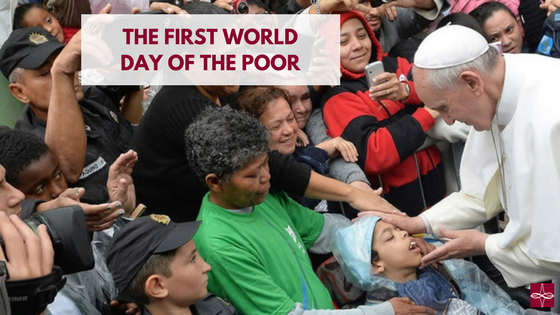

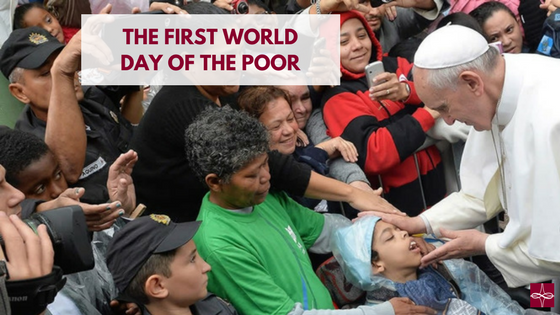

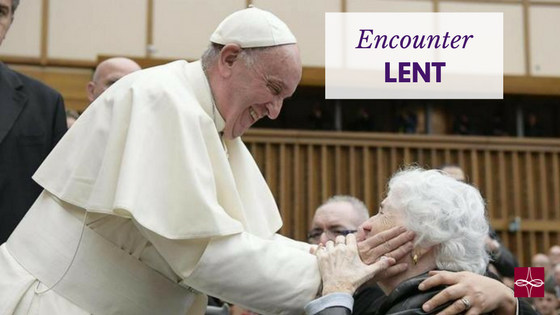

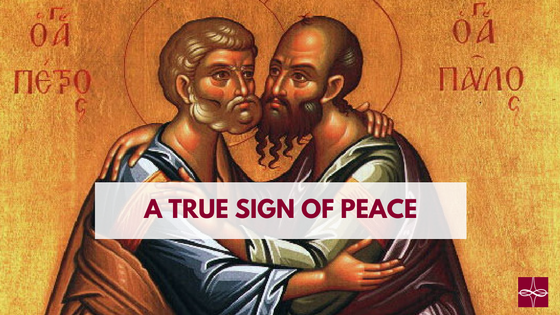

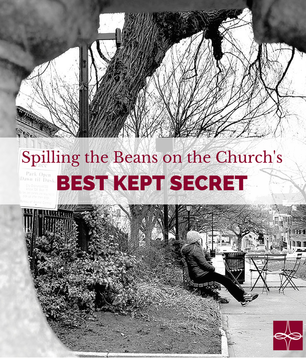

 RSS Feed
RSS Feed